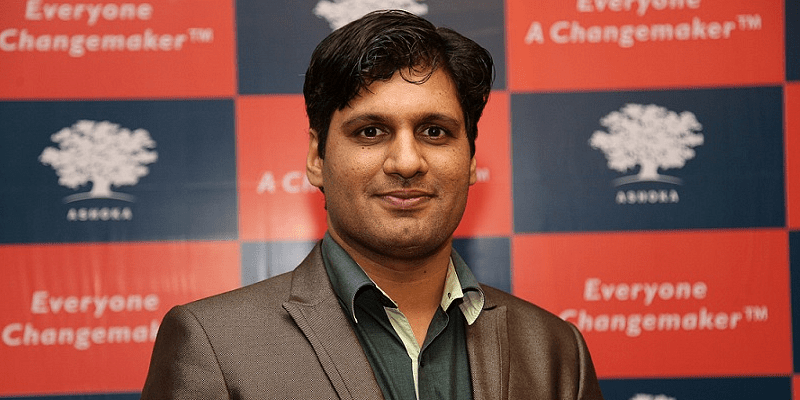Yashveer Singh is the Co-founder and Global Director of Ashoka Young Changemakers. Ashoka is the largest association of social entrepreneurs in the world, with a global network spanning over 70 countries. Its vision of Everyone A Changemaker is aimed at providing each young individual with the freedom, confidence, and social support to drive positive change (see our earlier profile here).
Yashveer — before joining Ashoka — founded a youth non-profit to address talent inequity in the development sector and inspire university students to pursue social entrepreneurship. He was awarded the Youth Action Net Fellowship by International Youth Foundation and was also recognised as Forbes 30 Under 30 Social Entrepreneurs in Asia. He was also awarded a BITSAA (Birla Institute of Technology and Science Alumni Association) 30 under 30 Award.
Yashveer joins us in this comprehensive interview on the increasingly important role of social entrepreneurs, their activities in the pandemic era, opportunities for collaboration, and founder tips.
Edited excerpts below:
YourStory [YS]: What are some outstanding examples of resilience by social entrepreneurs you have come across during the COVID-19 pandemic?
Yashveer Singh [YS]: The pandemic came with many challenges, and we saw many stories of resilience within our community. One of the major impacts of the pandemic has been on the livelihoods of migrant labour, and there has been a focus on creating more rural livelihood opportunities.
Our Ashoka Fellow Neelkanth Mishra is working towards realising rural livelihood entrepreneurship potential through fisheries and aquaculture. He pivoted his model to leverage technology to build the fishery value chain by transforming asset-poor producers into a self-reliant collective by building capacity to access knowledge and institution building towards enterprise and value chain development. This model change helped realise rural livelihood and entrepreneurship potential through fisheries and aquaculture.
Another inspiring story has been of two of our Ashoka Young Changemakers — Naisargik Lenka and Akash Singh — who collaborated to inspire more young people to grow as young changemakers, solving problems within their communities.
Naisargik and Akash organised a virtual mega-event — Udyami Utsav — a festival of innovation and entrepreneurship with a vision of ‘Har Ghar Entrepreneur,’ which gave young minds a platform to present their ideas and solutions and a chance to interact with some of the most influential people in the sector.
And while the pandemic has wreaked havoc, and many livelihoods were lost, Ashoka Fellows and Ashoka Young Changemakers — in true entrepreneurial fashion — shifted their strategy and models towards engaging in immediate relief work and impacted many lives through their commitment to restoring agency.
We also saw many other collaborations within the network and along the value chain to do meaningful work for their communities.
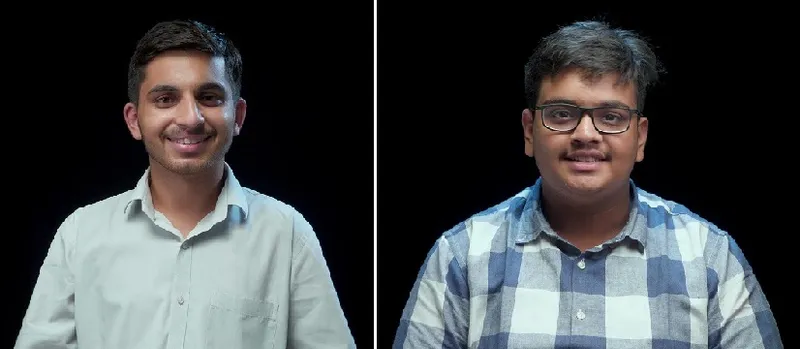
Akash Singh (L), Naisargik Lenka (R). Image credit: Ashoka Young Changemakers
YS: What is your current field of research and activity in social entrepreneurship?
YS: Since Ashoka is a global network of social entrepreneurs, we undertake several studies and activities that leverage the ‘network effect’ of social entrepreneurs.
For instance, our global impact and evidence team, in 2018, led one of the largest and most diverse studies on social entrepreneurs in the world. Periodically, we publish Impact reports and share our knowledge and learning across the world through our Leading Social Entrepreneurs publication.
Our Fellows study remains, however, one of the key tools to monitor our impact, and the team runs it once every three years. We also continue to evolve our impact studies to include not only measures for systems change ideas but also to capture large-scale societal framework change ideas.
The Fellows impact study is made of two parts: a quantitative survey that goes out to all fellows, and a set of in-depth qualitative interviews, with a sample of fellows to dig deeper into specific issues.
Specifically, in South Asia, in collaboration with the IKEA Foundation, we have started working towards building on the ‘network effect’ of social entrepreneurs to help revive livelihood opportunities for marginalised communities. With this, we seek to scale-up innovative ideas of social entrepreneurs creating livelihood opportunities.
Through this effort, we are witnessing that social entrepreneurs are coming together, and collaborating to further their system-changing approaches and ideas. Since the pandemic hit last year, this initiative seems to be more relevant now than before, and we aim to further support social entrepreneurs in their work.
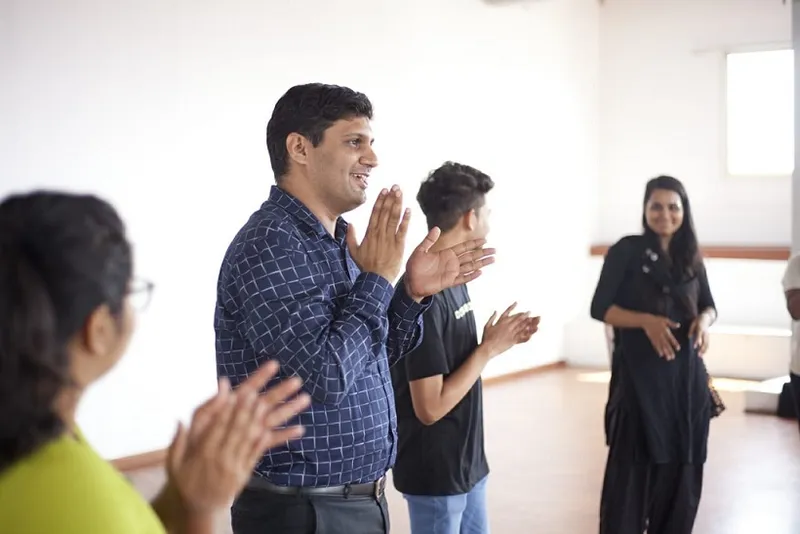
Yashveer Singh. Image credit: Ashoka Young Changemakers
YS: What are the typical challenges social entrepreneurs face as they scale up their organisations? How can these challenges be addressed?
YS: Some of the key challenges that social entrepreneurs have always faced, and will continue to face, are raising and mobilising resources to scale their efforts, finding the right talent to help execute their visions, and finally, balancing profits with impact.
First, across the world, donors and investors are looking for rapid and higher impact growth. But that’s not something that all social entrepreneurs can deliver in a short time. Many times, social entrepreneurs work in fields where the development period for new services and programmes, creating awareness, or behaviour change is long. But donors and investors focus on short-term returns, making life difficult for entrepreneurs.
Without the much-needed patience and support, several social entrepreneurs end up looking for short-term results and spend time preparing reports to satisfy the donors, and hence, deviate from their true long-term goals.
They also contend with each other for the limited funds out there, and if they are not able to get the support from institutional donors, they spend valuable time and resources on crowd fundraising campaigns or raising from friends and family.
Second, hiring the right team to complement the passion and skill-set of founders is a crucial part of growing every social organisation. The social sector requires many of the same specialised skills as needed in the business sector, including selling, branding, and managing financials.
However, because of the shortage of funds and relatively lower wages, this sector is not able to attract many talented people who end up working for multinational organisations or high growth startups.
The founders then overextend themselves, multi-tasking in developing their products, fundraising, and driving the organisation. While they manage in the short term, it eventually leads to burn-out and average performance. Without the right team, the organisation is not able to meet its goals effectively.
Founders try to rehire folks, but it leads to a repetitive cycle. Ultimately, the organisation that had the potential of creating large-scale impact ends up stagnating. In my experience, all social entrepreneurs who want to scale up face these challenges, except a handful.
Lastly, social entrepreneurs have a hard time maintaining their revenue stream. For instance, a social entrepreneur in the education space recently shared with me that it was very easy to roll out his programme to high-income schools rather than government and low-income schools. However, he chose to serve the latter category to ensure more impact.
Such struggles are very common for social entrepreneurs, maintaining a mission, staying true to it while maintaining a balance with financial sustainability can be challenging.
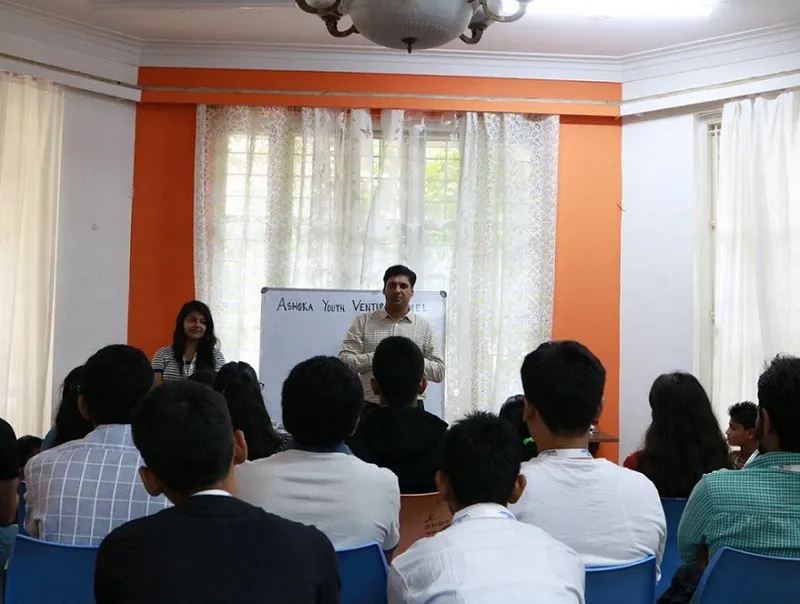
Yashveer Singh. Image credit: Ashoka Young Changemakers
YS: How should innovators strike that delicate balance between ‘Stick to your vision’ and ‘Adapt to a changed world’?
YS: I believe, for every entrepreneur, these two aspects go hand in hand. For social entrepreneurs, sticking to the vision is always the key. That shouldn’t change.
What needs to be adapted is the process of achieving this vision, especially in this ever-changing world. This means, for example, who are the team members, their roles and responsibilities, the processes to execute plans and strategies, and so on, have to be fluid and flexible, best adapted to the given situation and environment. This is the balance that social innovators need to strike.
YS: Is there such a thing as the ‘ideal age’ for a social entrepreneur, or can the startup bug strike you at any time?
YS: In today’s rapidly changing world, becoming an entrepreneur and developing an entrepreneurial mindset has no age-limit.
Contrary to popular belief, what we are witnessing is an exponentially growing community of young people who are realising that the systems they live in today, or the environment they are part of, often have gaps where they can contribute and design entrepreneurial solutions.
Our global Ashoka Young Changemakers community comprises teen- changemakers under the age of 20, who have all built a team and started their own initiatives and developed solutions to solve a social problem.
These teenagers are role models for every young person in the world. They are critical in co-leading the movement to create a world where everyone can become a changemaker at any age or at any time.
The majority of Ashoka Fellows started their change-making journey in their teen years. This early experience had helped them in building their ability, skills, and mindset for a successful entrepreneurial career later on.
This is why, today, it is important that everyone starts mastering these change-making abilities from a very young age.
YS: What are the top three success factors for government, civil society, and industry to work together and grow social entrepreneurship?
YS: All sectors are learning from each other and need to work together to ensure the success of building successful societies. In the same way, social entrepreneurs are close allies of the government, civil society, and the industry.
In fact, as the rate of change is accelerating, the citizen sector has increasingly come to play a fundamental role in a world of change and change-making.
Since Ashoka’s launch about 40 years ago, the citizen sector has started to fundamentally shift to entrepreneurial and competitive architecture, which until then, had been largely dominated and defined by the business world. The citizen sector has been catching up rapidly, growing many times faster than the business sector.
On the other hand, government institutions still majorly struggle with rigid and hierarchical structures. The entrepreneurial revolution affects this sector profoundly and structurally. Social entrepreneurs have the intellectual capital, and they can contribute to reaching systemic change.
The citizen (and the business) sector face the challenge to help governments overcoming these traps, which can be quite uncomfortable. However, overcoming this discomfort is essential.
The success factors to bring these actors together are, first, understanding the rapid transition and the historical moment we are in. Second, every industry will need to see the importance of collaboration to make the Everyone a Changemaker movement happen. This goes together with what I said earlier, even if this implies a certain degree of discomfort and overcoming this discomfort, which would be the third factor.
In this way, the importance of social entrepreneurs becomes obvious, and everyone, including policymakers, educators, the industry, and the social sector, can define for themselves how to step in and create change.
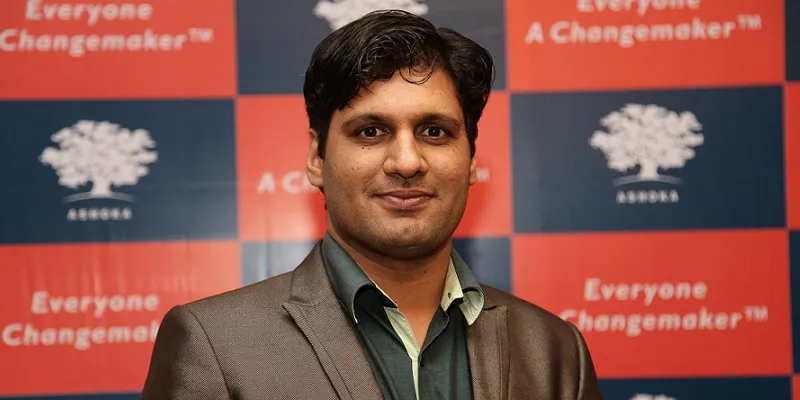
Yashveer Singh. Image credit: Ashoka Young Changemakers
YS: What are some ways where social entrepreneurs from different countries can cooperate and collaborate?
YS: Generally speaking, connectivity has significantly lowered barriers for everyone to participate and stay connected.
Last year has shown once more the importance of mobilisation and collaboration of social entrepreneurs and social change agents across countries and sectors. This is essential towards reaching the common goal of creating a fair and just society.
Further, as the pandemic hit, social entrepreneurs needed to increasingly exchange resources and knowledge — through online conferences, publishing resources, creating open-source toolkits of their work that others can replicate. Also, the government business sector needs to support these social entrepreneurs with the resources to reach out to a larger audience. I believe such measures can significantly increase much-needed collaboration.
One example of international cooperation is, for instance, the Catalyst 2030, which is a global movement of social change innovators and social entrepreneurs who are collaborating towards generating system-changing ideas in reaching the Sustainable Development Goals.
Another example is the Good Market community, started by Ashoka Fellow Amanda Kiessel, where changemakers — whether institutions or individuals — come together on a common platform, reach out, and support each other.
YS: What are the top three contributions digital technology is making to social entrepreneurs, and what are the key challenges it poses?
YS: We live in an increasingly hyperconnected world, and technology plays an essential function in the underlying change in human organisations. Technology has immensely lowered the barriers for humans to connect. Basically, at little or no cost, we can connect with people from all over the world within seconds. This is one huge contribution that digital technology brings to the fore.
Technology has helped social entrepreneurs communicate their story to larger audiences, fundraise resources from the citizen sector, and accelerate the rate of impact.
For instance, Give India — a Bengaluru-based non-profit organisation — has facilitated Rs 250 crore in philanthropic funds through its online donations platforms and partnerships, which is nearly a 5X growth from FY2020.
Moreover, technology has helped social entrepreneurs automate their operations and processes — from hiring to accounting — resulting in faster and accurate actions at lower costs.
However, of course, while digital technology brings such positive contributions and freedom, it also has its limitations. With the massive growth of information and data online, we are susceptible to immense noise and fake news that has the potential to create harmful consequences, including political polarisation.
In fact, this is another big reason why empathy is one of the key skills needed by every citizen, so they can themselves identify the right from the wrong and form their own opinions, rather than being forced to accept one.
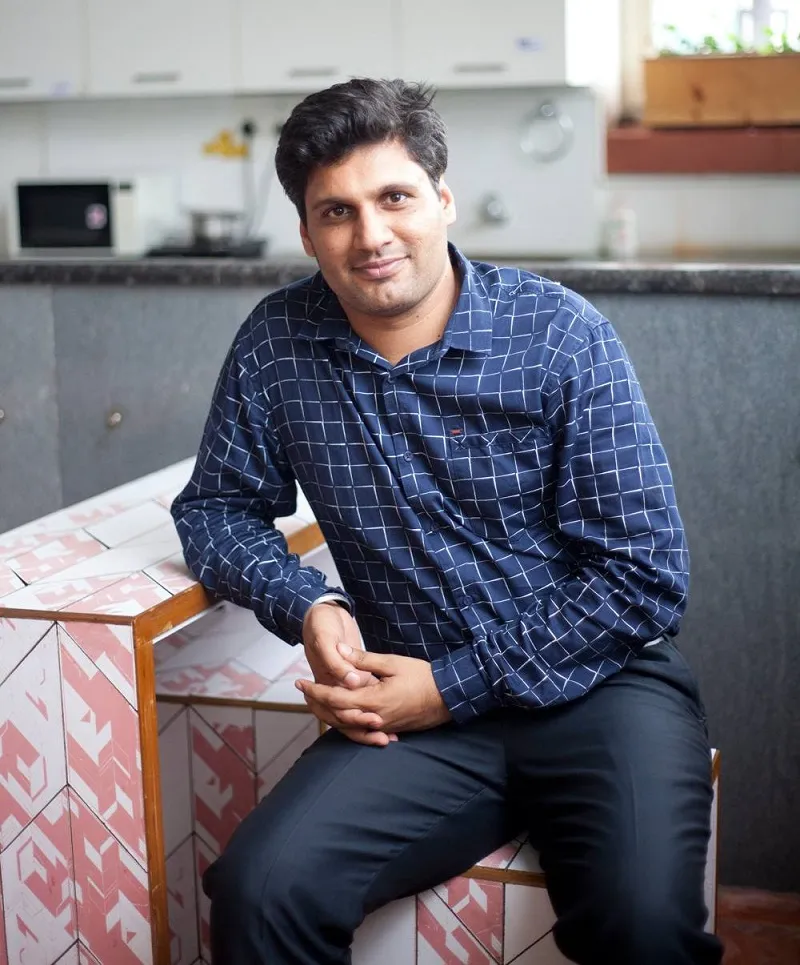
Yashveer Singh. Image credit: Ashoka Young Changemakers
YS: What is the scope and scale of your activities in India?
YS: At Ashoka India, we aim to bring together social entrepreneurs and changemakers to create the Everyone a Changemaker world. One way of doing so is by functioning as a network of collaborators and bringing together all changemakers to amplify change. There are several programmes and initiatives run in India.
In the Ashoka Venture and Fellowship Programme, the network of Ashoka Fellows has grown as large as more than 400 Fellows. They have created significant pattern-changing solutions in the fields they are working.
To name a few, Kailash Satyarthi, Nobel Peace Laureate, 2014, or Jeroo Bilimoria, Founder of Childline and Aflatoun, are Ashoka Fellows from India. The impact of their work has been profound.
Through our youth programmes such as the Ashoka Young Changemakers programme, and initiatives such as Early Changemaking, Storytelling, and Your Kids (programme to help parents enable their kids as changemakers), we seek to inspire young people, especially teenagers and children, to become changemakers, and contribute to and drive the Everyone a Changemaker movement.
The Ashoka Fellows report showed that Ashoka has had an impact on their work and the success of their work. For us, it is great to see how the Ashoka Fellows have kept on growing and creating positive change and paradigmatic shifts. It is very inspiring.
I think what is also very important to us is that we seek to bring together all changemakers and let the network grow larger. When the different individual knots, each representing a changemaker — whether it be an individual, teenager, parent, educator — are tied together, a whole culture and system of changemakers are created, eventually building up to a world in which everyone is a changemaker.
YS: How has Ashoka grown in India over the years, and what are your plans for this year?
YS: In the past few years, Ashoka in India has grown organically, as well as its impact. We elect social entrepreneurs across diverse sectors who have system-changing ideas. Most recently, we launched the Ashoka Young Changemakers programme, to provide a new insight into our society that every young person should have the opportunity to practice being a changemaker.
We are continuously growing the Everyone a Changemaker framework and culture and will continue to do so this year. There are great minds and changemakers who are contributing significantly to the betterment of society while changing patterns in their field of work, and Ashoka will continue to support and amplify their work.
2021 is already starting on a high note, with the selection of the next cohort of Ashoka Young Changemakers in India in January. Each of the selected ones has had the “Your dream, Your team, Your changed world” experience and are inspirational role-models for all young people out there.
YS: As the new year and the new decade got underway, what is your outlook for the future?
YS: The world is changing at a fast rate, and the pandemic has only accelerated the rate of change and made us realise it. It has shown, and in fact, is still showing old patterns and systems of the world that are dying and that new ones are emerging.
It has strongly reminded us of the urgent need to move to a world in which everyone can adapt to and contribute to change, rather than being negatively affected by it. For this, we need to ensure everyone masters change-making from a young age.
YS: In an age of increasing conflict, disparity, and climate change, what is the key role of social entrepreneurs today?
YS: Social entrepreneurs are critical, and are at the frontlines in solving the most pressing social and environmental challenges of our time. These are the entrepreneurs that identify a major pattern change that will serve the good of all and then make it happen through their pattern-changing solutions. They play an important role in shaping tomorrow’s societies.
In fact, social entrepreneurs will not commit themselves fully to a cause if they cannot intuit how the world is going to look like in 10, 15, 20 years from now. This is why their work can provide the most accurate forecast of what the world is going to need in the future, and this is also why they are so critical in this very moment in history.
To substantiate, around two-thirds of all Ashoka Fellows have changed national policies within the first five years since the launch of their venture.
They are truly role-models for change-making and can inspire other changemakers as well.
YS: What are your parting message to the startups and aspiring social entrepreneurs in our audience?
YS: Despite the uncertainty, crisis, and challenges mentioned, an Everyone a Changemaker world, if fully achieved, can create an entrepreneurial movement. What is first important is to understand the ever-changing world and patterns around us.
It is then crucial to be able to empathise with others, see new opportunities, bring the right team together, work in an open, fluid team, and lead a team collaboratively. This is what every social entrepreneur and startup needs to master.
If everyone starts doing this, problems won’t outrun solutions. All the societal divisions, anger, and frustration that divide us will reduce over a period of time. It is also very much an important step towards a giving and respectful world.
Being a giver is a powerful gift for anyone.

